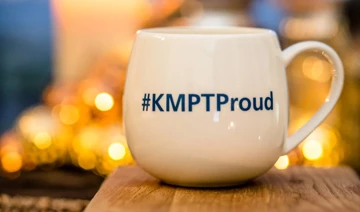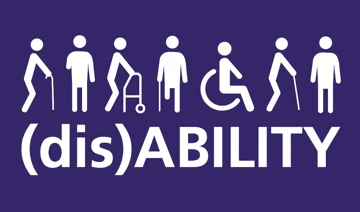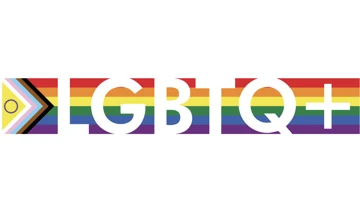Equality and diversity
We are committed to building and delivering services where every individual has the opportunity to achieve their potential, is treated with respect and is able to be themselves.
At KMPT, we are committed to creating an inclusive environment where the culture embraces fairness in both our service provision and employment.
We understand that including our service users and staff in improving our services is vital; ensuring decisions are made with service users at the forefront and where staff are given every opportunity to develop and progress within their careers.
The Equality Act became law in October 2010. It replaced previous legislation (such as the Race Relations Act 1976 and the Disability Discrimination Act 1995) and ensures consistency in what employers and employees need to do to make their workplaces a fair environment and comply with the law. View it here: Equality Act 2010
The Equality Act sets out the protected characteristics as:
- Age
- Disability
- Gender reassignment
- Marriage and civil partnerships
- Race
- Religion and belief
- Sex
- Sexual orientation
- Pregnancy and maternity
The Public Sector Equality Duty consists of a general equality duty, which is set out in Section 149 of the Equality Act 2010, and specific duties, which are imposed by secondary legislation (the Equality Act gives ministers the power to impose specific duties on public bodies to enable them to perform the Equality Duty more effectively).
As a trust, we are obliged to fulfil and promote the Public Sector Equality Duty. As a public service we are required to:
- Have due regard to the need to eliminate discrimination
- Advance equality of opportunity
- Foster good relations between people who share a protected characteristic and those who do not.
To meet our obligations, we carry out Equality Impact Assessments (EIAs) on all our policies and procedures. We carry out equality analyses on recruitment, training and on our workforce.
To ensure that all members of our local communities are experiencing fair, equitable and satisfactory services from KMPT we may need to ask you to share some personal information about yourself. This could be about your ethnicity, religion or a disability you may have. You do not have to share this information if you choose not to.
Sharing personal information will not affect the the care that you receive, but it will help us to deliver services that recognise and meet your needs. These leaflets provide more information about how your personal information is managed:
Collecting protected characteristics information leaflet
Collecting protected characteristics information leaflet - easy read
The Workforce Race Equality Standard (WRES) was introduced to ensure the collection and use of workforce data and analysis was effective to address the under-representation of black, Asian and minority ethnic staff within the NHS.
In 2015, the WRES was mandated through the NHS Standard Contract. In 2016, the Care Quality Commission (CQC) inspected the WRES to assess whether organisations were well-led.
Our WRES is designed to focus us to achieve greater diversity in our workforce. It allows us to identify gaps for improvement based on qualitative data collected and monitored.
As part of the standard, we are required to publish our workforce ethnicity data annually.
At KMPT, we want to ensure that anyone with a disability, impairment or a sensory loss is able to access our services and is given information which is easy to read and is a communication that meets their needs.
We are continuously looking to improve our equality, diversity and inclusion strategies and we have committed to setting specific challenging objectives to improve our services and the wellbeing and development of our workforce.
Our equalities objectives show how we will:
- eliminate unlawful discrimination
- promote equality of opportunity, and
- promote good community relations.
Our equality objectives are published in our Equality, Diversity and Inclusion Strategy. Our progress is reported in our Annual Report to Board.
NHS Equality Delivery System (EDS) 2023-2024 is an improvement framework for all NHS providers. The resulting report/action plan is shared with the public, staff and our partners.
Visit the NHS website for more information: NHS England » Equality Delivery System 2022
It is designed to help providers:
- Improve the services they provide for local communities
- Improve the experiences of people using our services
- Consider how to reduce health inequalities in the locality
- Provide better working environments, free of discrimination, for our staff
The EDS 2022 framework is made up of outcomes covering patient and service user care and access; working environments and leadership. We analyse our performance against outcomes for each of the groups afforded protection under the Equality Act 2010, and Inclusion Health groups (ie- refugees, asylum seekers and homeless people), using the best available evidence.
Using this analysis to work in partnership with service users, carers, organisations and local stakeholders, we set equality priorities to improve experiences for our patients, staff and local communities in addition to meeting our Public Sector Equality Duty.
Read KMPT’s Equality Delivery System (EDS) Action Plan for 2023-24
Employees have the opportunity to join our vibrant diversity staff support networks, including the networks for BAME, faith, LGBTQ+ and able (disabilities). Our networks help raise awareness across KMPT and help us build an inclusive culture where everyone can thrive and be themselves at work.
KMPT is committed to equality, diversity and inclusion and believes all staff should be treated with respect and dignity at all times. Our staff network/forums are in place to raise awareness and provide an environment where staff can discuss issues and look at positive solutions as well as host initiatives and diversity celebrations.
Our workforce data is broken down by headcount, full-time equivalent and ethnicity. There is also data in regard to local population, joiners and leavers.





